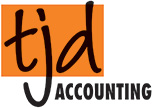The Guide To Teaching Children About Money
Teaching Kids the Value of Money

Teaching children the benefits of saving
How do we teach our children about the value of money? As parents we want our children to prosper with health, friendships, education and generally grow into strong, reliable adults. Yet we sometimes forget, until maybe too late that for our children to prosper we need them to understand money.
As soon as our children are old enough to understand the concept of money, they should be shown the value of money through saving, budgeting and wise spending. By showing our children early the benefits of reaching goals through saving, we are helping them to build a solid foundation of great financial habits for the rest of their lives.
Money, Technology and Children’s Perceptions
As technology evolves, children are becoming less aware of cash transactions, only seeing the credit or debit card being handed over for purchases. The removal from cash transactions in effect warps children’s ideas of money.
Children see money as an endless supply rather than the money actually coming out of the family’s bank account. One way to combat this and to teach your kids about money, is to regularly take children into the bank to deposit cash into a savings account set up in their name.
Depositing cash will help them to see cash transactions take place and watch their balance rise. Whether you are a child or adult, we all like to see our savings increase.
Children and watching their money grow
Once children start to see their money grow, they’ll more than likely be tempted to take out the money and buy the latest fad. This becomes the time to explain interest and use a visual aid to track the savings going in with small rewards for sticking to the savings plan. For a child, savings can seem very long and staying on track to reach the goal also difficult. This is a great time to discuss the idea that something worth doing is worth waiting for.
Set an achievable savings goal together that will make the savings experience positive, perhaps saving for something they really want or just saving for the future. Work out what amount will need to go into the bank each week from their pocket money to make the goal attainable or alternatively provide them with half of their pocket money and together deposit the savings half.
ASIC has a Money Smart program with excellent aids for teaching kids about money.
Teach your kids about money at the ATM
Another great tool is the ATM. Showing and discussing with children that the ATM is attached to the bank and holds the money that you earn through working and saving.
Explaining that each time money is withdrawn via the ATM means less money in the bank being held. This interaction with you helps your children to understand that they are not just able to go to the never ending money source in the wall and take out whatever amount they want. Never truly understanding how money and the ATM work.
What better way to aid your children in protect their future assets than by teaching them about saving and asset growth, early.
Adults who have not been taught the power of money over their lives struggle with savings plans. The concept of not being able to get what they want exactly when they want it. Therefore teaching children early to understand that nothing is free and that the only way to earn what we want is to work and earn a money each week is extremely important.
Do I need this or want this?
Understanding that needs come before want is a valuable life lesson that can be put into place early through example. Perhaps when shopping and all the lollies and chocolates, deliberately placed at children’s eye level, are being asked to be purchased, invite your child to see what they can buy with a set budget. Send them on a scavenger hunt with a budget.
As your kids get older the lesson continues, now its long term goals such as a new dress for formal or the all important car. Credit is another major concern, therefore discussions around only purchasing what they can comfortably afford to repay and staying responsible is essential.
As daily living expenses increases, it becomes more prevalent to keep our children aware of the pitfalls of money and the rewards. The goal should always be towards a financially stable and well budgeted lifestyle.
Children grow to young adults and as such may have saved enough for a trip overseas, then it is time to read our advice on overseas travel and your money.
Some parents along with teaching children early about the benefits of understanding money also set up Trust funds. The trust fund is designed as a vehicle to maintain control whilst building wealth. The fund may contain financial products such as cash, bonds or property held in the trust until children reach a certain age or specific event in their lives, when they will then be entitled to a yearly income generated by the fund.
For further advice on setting up a trust fund for you child, give TJD Accounting Services a call where we’ll make sure you’re provided with the right fund coupled with the right advice.
Until next time,
TJD Accounting Services
9379 4040
